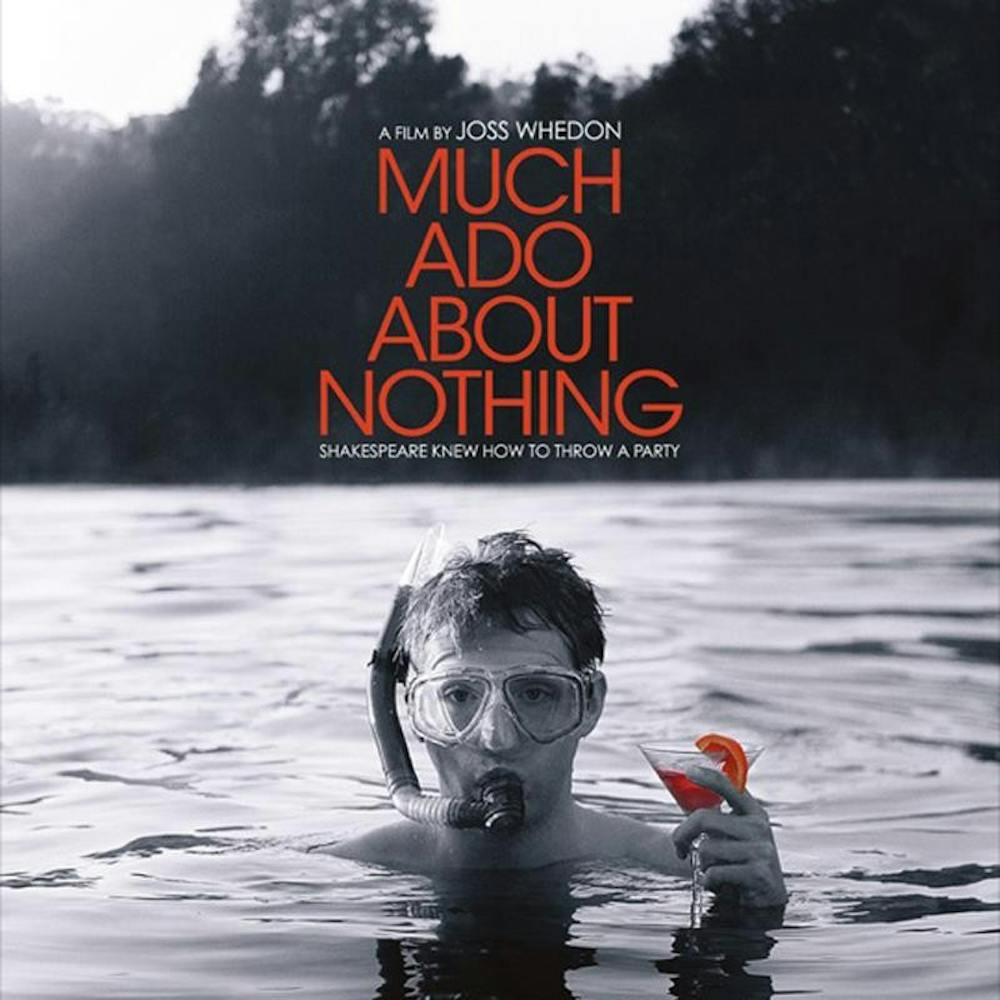It’s easy to be skeptical about Joss Whedon’s “Much Ado About Nothing.”
Presented entirely in black and white, using the original Shakespearean text, but taking place in a completely modern-day setting, it has the potential to end up feeling pretentious, gimmicky or incredibly clunky, or all of the above especially when you look at Whedon’s track list of superhero and sci-fi work.
Believe me, “Much Ado About Nothing” at moments feels pretentious, gimmicky and clunky, or a combination of those three, but for the most part, it works well.
The film is almost exactly the same, on paper, as its original Shakespearean drama of the same name — a tale of a young man, Claudio, seeking love and marriage in Hero, then defaming her, then falling back in love with her and marrying her, all while Benedick and Beatrice let their love unfold in its comedic anti-love ways, ending in their marriage.
At the helm of all things good in this adaptation is the brilliant work of the ensemble cast, notably the acting of Amy Acker, Alexis Denisof, Clark Gregg and Fran Kranz, as Beatrice, Benedick, Leonato and Claudio respectively.
It looks like they’re having fun, a true testament to the art of acting in its purest form, and they make text that is 400 years old very real and human.
Joss Whedon leaves a giant stamp on this film, for better or worse. It’s filmed in his house, he wrote the score for it and he produced and adapted it for the screen.
Much of the time, it’s great. The imagery is beautiful and the black and white pretty much works.
The only problem “Much Ado About Nothing” has is its only selling point, though, which makes for a sticky dilemma.
I can’t help but shake off the feeling that if it was in modern language, and in color, it would be painfully average. But the Shakespearean text sometimes just doesn’t work. It feels overly ambitious and falls flat when it’s so difficult keeping up with just the most basic of plotlines.
It’s hard to really love the movie when it is riding so hard on a concept that is sort of gimmicky.
I imagine the audience for “Much Ado About Nothing” is small, but that’s OK, since this tiny-budget nugget didn’t venture out to be the next “Avatar.” But the few people that do watch it will most likely find themselves enjoying the film — not in a life changing or top-10 list kind of way, but in a light comedic-waltz kind of way.
“Much Ado About Nothing” is a solid piece of cinema simply because of how close it gets to reaching its lofty goals of intermingling the modern and the antiquated in a world of movies that have given up on trying to be anything at all.
400 years later 'Much Ado' still solid

Get stories like this in your inbox
Subscribe





